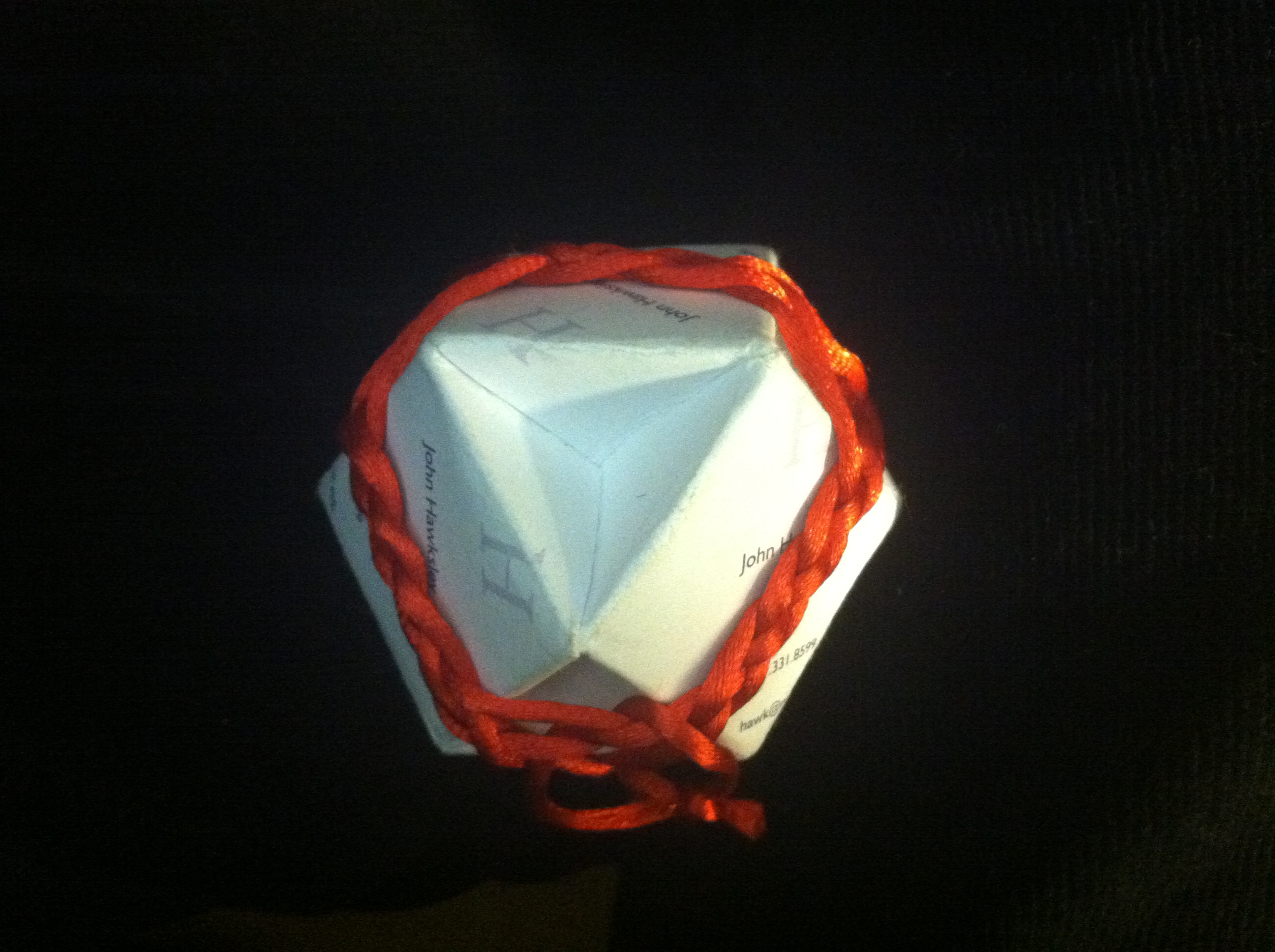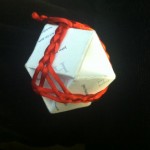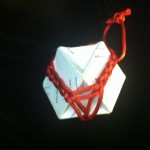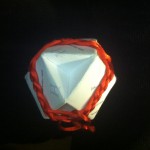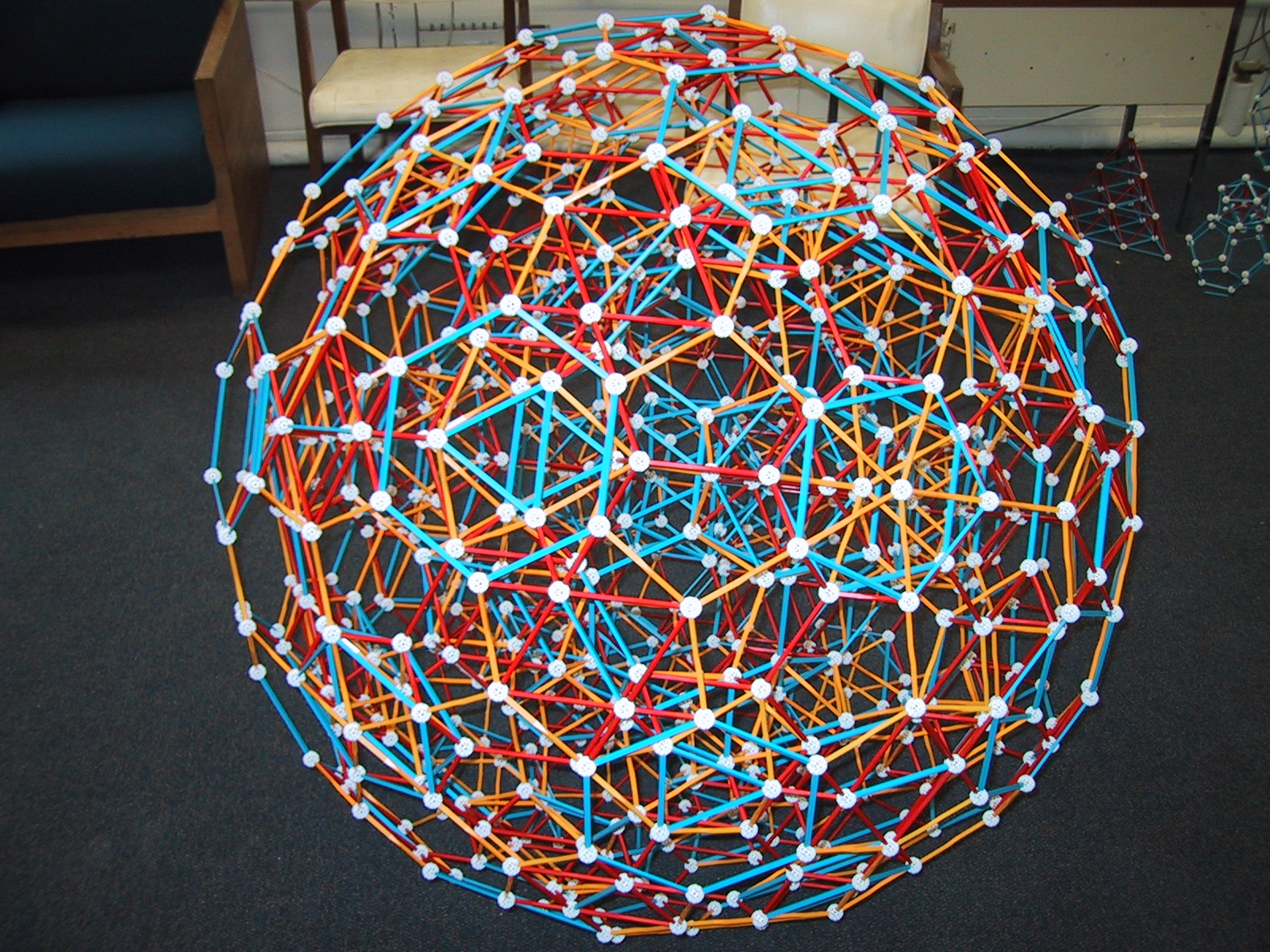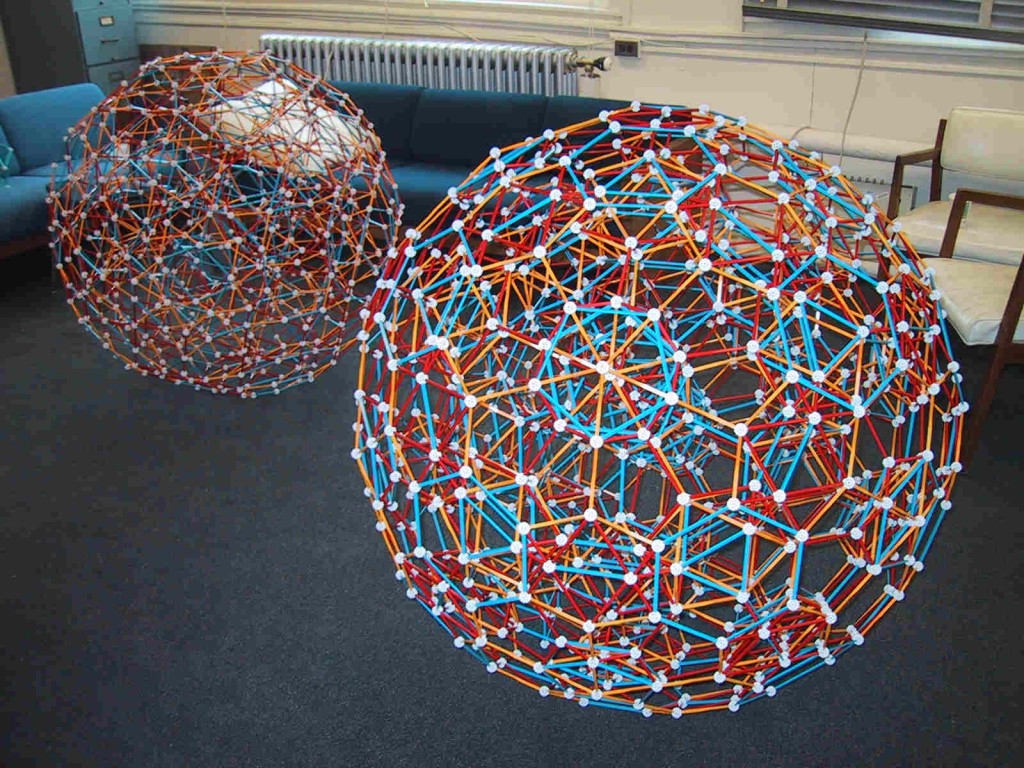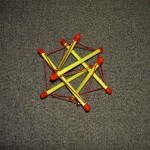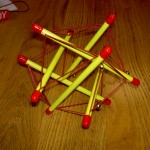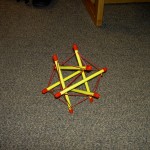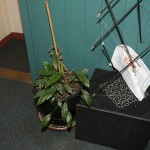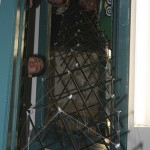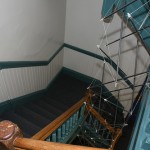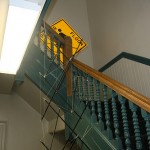are a super cool building toy made by my friend Mike Woods and his company E&M Labs. We made these nifty things from them at my birthday party. What will you make?
Binder Clip Sculptures
My friend Zach Abel has come up with an impressive assortment of binder clip sculptures. I love the idea of taking everyday objects and turning them into amazing things, so I felt compelled to try making some of my own.
Knotted Origami
seems like just the thing that I should like – seeing as I clearly very much like origami and knots. For exhibit here is an origami cubeoctahedron out of business cards that has been wrapped by a strand of red cord. The cord wraps around several times with four strand braids occurring every time four strands overlay. The resulting shape outlined by a cord is tetrahedral. I made this on the plane to G4GX. While there, I also worked on making a business card tetrahedron wrapped with octahedral knotwork, which, unfortunately, seems to have been misplaced.
Zometool
Zometool is a building system consisting of a variety or rods that can be slotted into balls at a variety of angles. It provides much more construction flexibility than the building toys you may have encountered as a child. For example, the structure in the first image is a projection onto three dimensions of a truncated 600-cell. I helped build these models in January 2004.
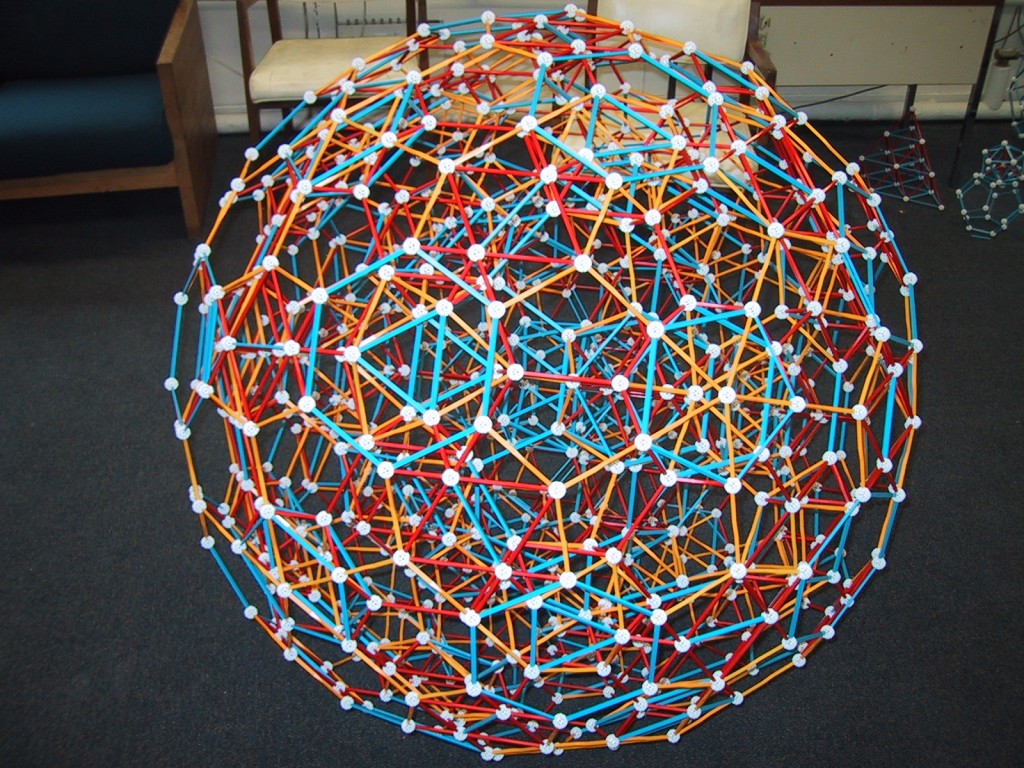
Tensegrity
Photos of the Random Hall tensegrity are from the Random Hall blog and were posted by Ternus.
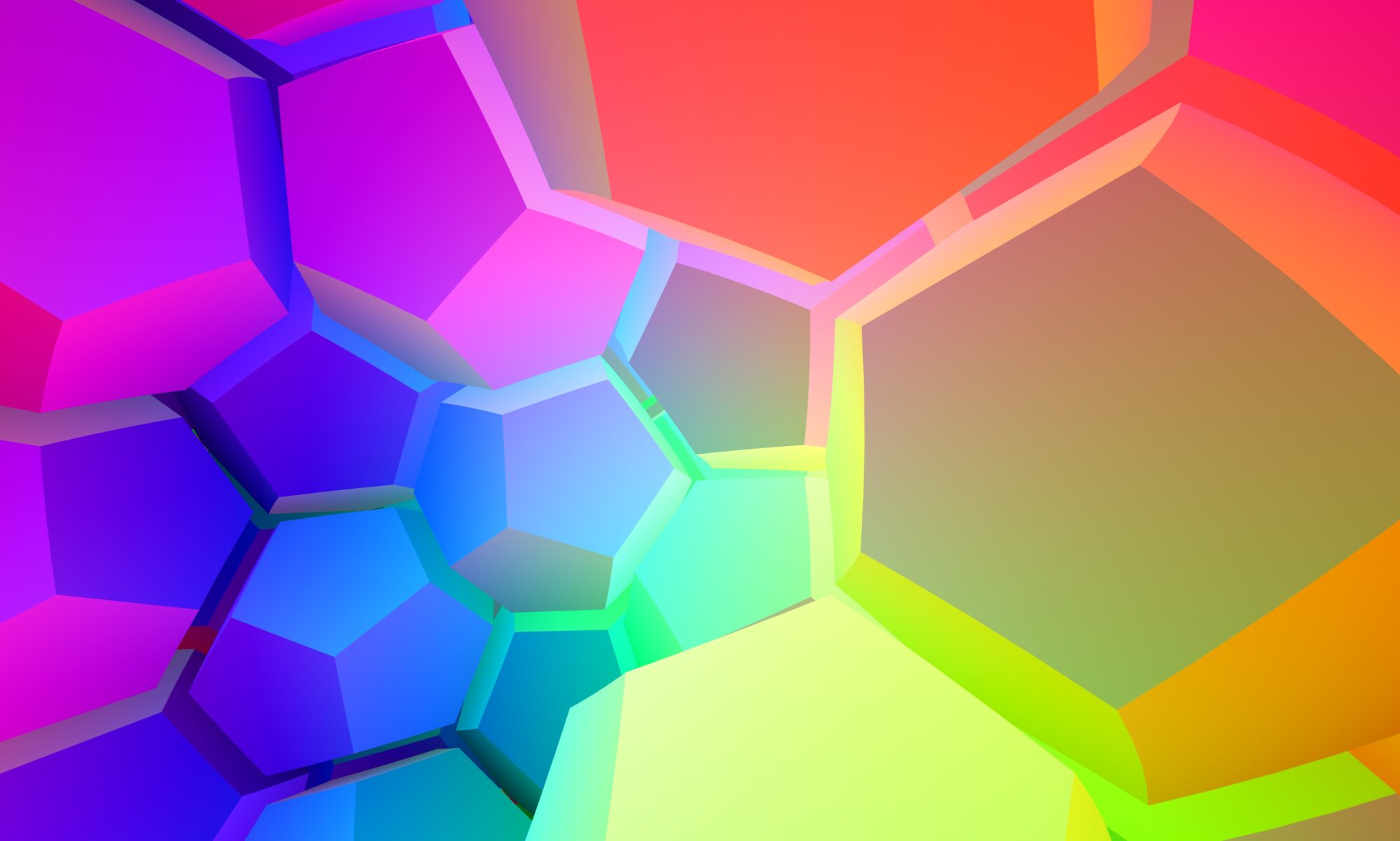
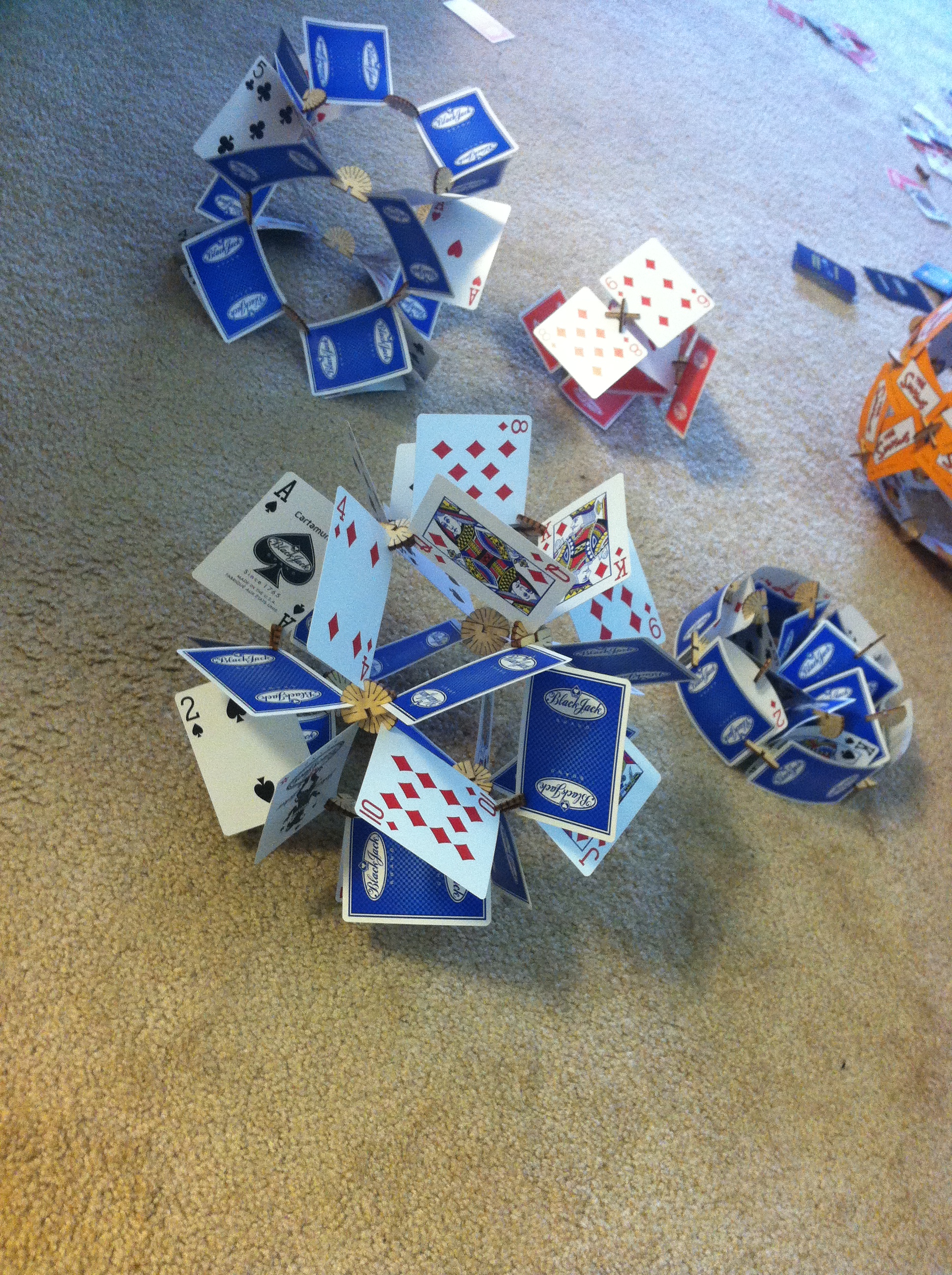
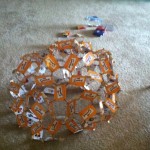
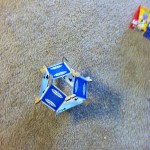
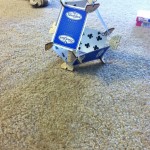
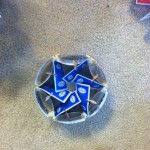
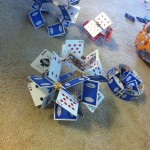
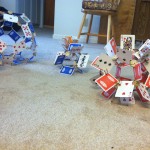
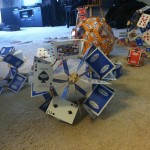
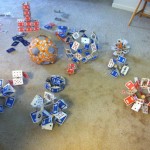
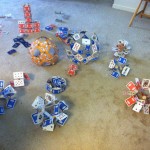
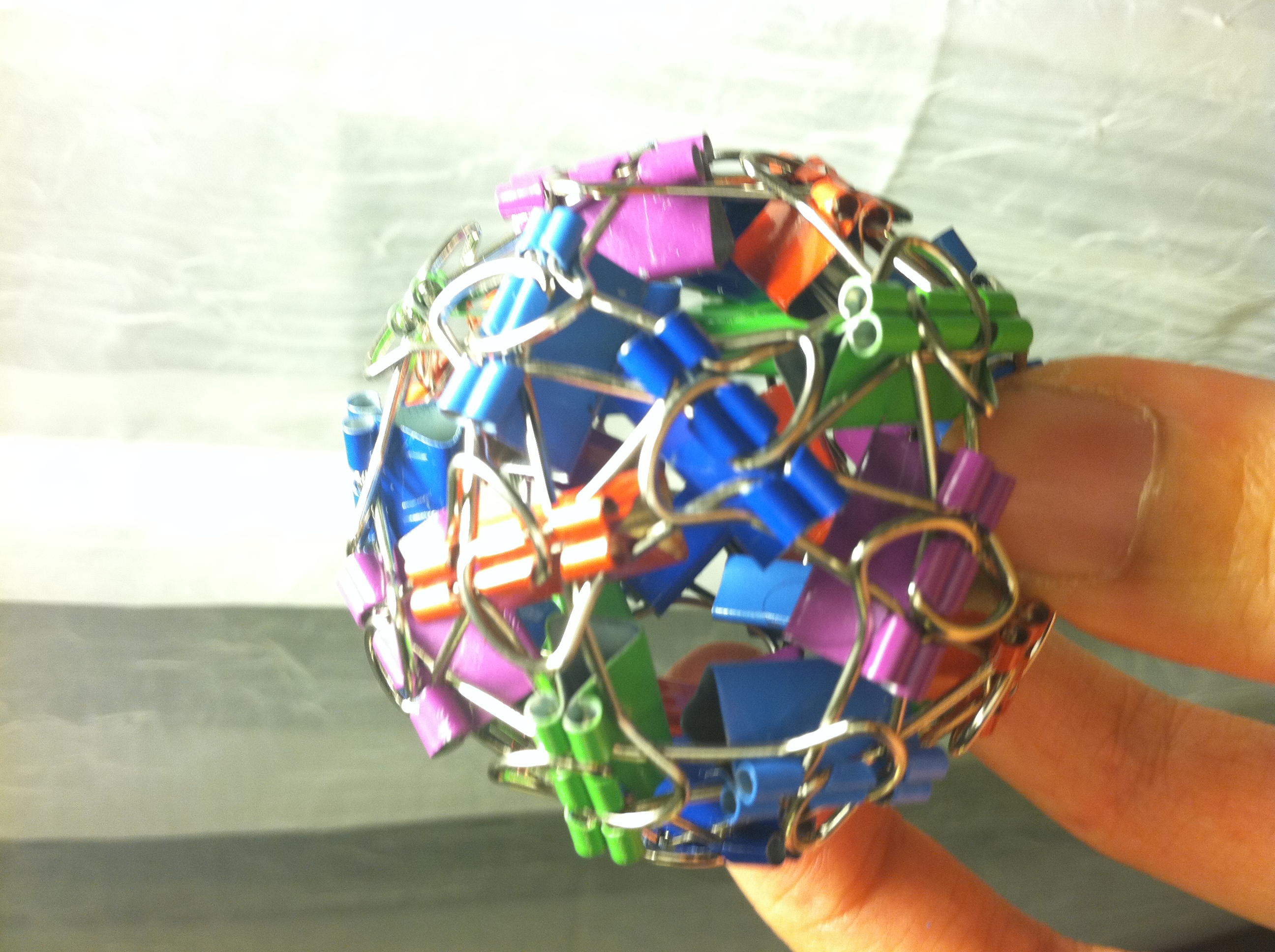
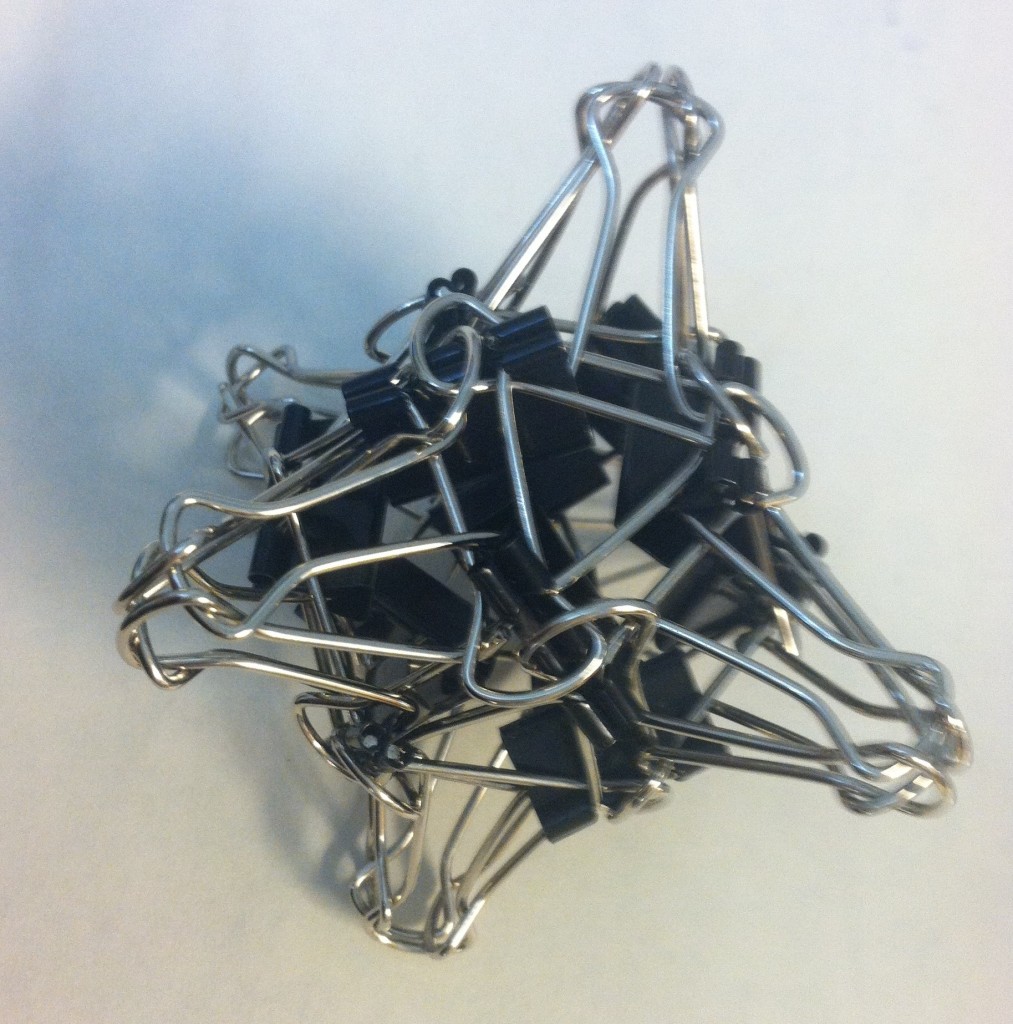
![39840317-IMG_0266[1]](https://andreahawksley.com/wp-content/uploads/2012/04/39840317-IMG_02661-e1403025489734-764x1024.jpg)
![39840320-IMG_0399[1]](https://andreahawksley.com/wp-content/uploads/2012/04/39840320-IMG_03991-1024x764.jpg)
![39840321-IMG_0267[1]](https://andreahawksley.com/wp-content/uploads/2012/04/39840321-IMG_02671-1024x764.jpg)
